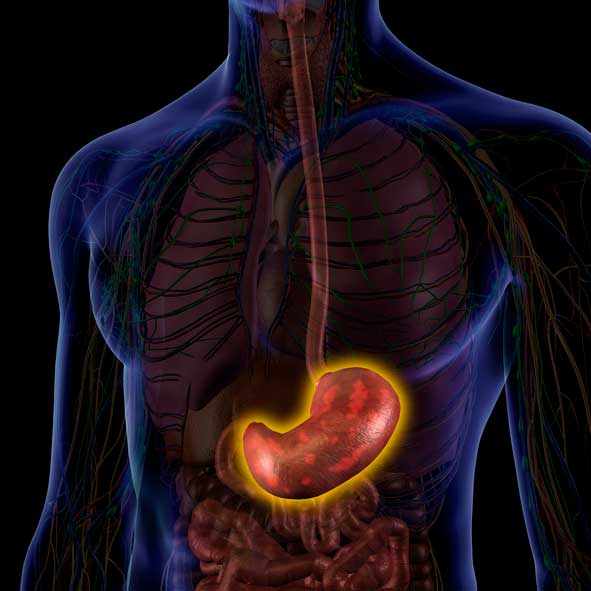Stomach ulcers can become a harrowing issue to have to deal with, and when left untreated may cause serious damage. The acids in our stomach are designed to digest food, but when that acid comes in contact with the tissue lining our stomach, it can damage the surrounding nerves, leading to chronic pain. Stem cells may be able to help patients with stomach ulcers heal and find relief from their symptoms.
What Is A Stomach Ulcer?
Stomach ulcers, which are also known as gastric ulcers, are painful sores in the stomach lining. Stomach ulcers are a type of peptic ulcer disease. Peptic ulcers are any ulcers that affect both the stomach and small intestines. Stomach ulcers occur when the thick layer of mucus that protects your stomach from digestive juices is reduced. This allows the digestive acids to eat away at the tissues that line the stomach, causing an ulcer. Stomach ulcers may be easily cured, but they can become severe without proper treatment. Stomach ulcers are almost always caused by either an infection with the bacterium H. pylori or long-term use of nonsteroidal anti-inflammatory drugs (NSAIDs), like aspirin. Rarely, a condition known as Zollinger-Ellison syndrome can cause stomach and intestinal ulcers by increasing the body’s production of acid. This syndrome is suspected of causing less than 1 percent of all peptic ulcers. Several symptoms are associated with stomach ulcers. The severity of the symptoms depends on the severity of the ulcer.

The most common symptom is a burning sensation or pain in the middle of your abdomen between your chest and belly button. Typically, the pain will be more intense when your stomach is empty, and it can last for a few minutes to several hours. Diagnosis and treatment will depend on your symptoms and the severity of your ulcer. To diagnose a stomach ulcer, your doctor will review your medical history along with your symptoms and any prescription or over-the-counter medications you’re taking. To rule out an H. pylori infection, blood, stool, or breath test may be ordered.
With a breath test, you’ll be instructed to drink a clear liquid and breathe into a bag, which is then sealed. If H. pylori are present, the breath sample will contain higher-than-normal levels of carbon dioxide. Treatment will vary depending on the cause of your ulcer. Most ulcers can be treated with a prescription from your doctor, but in rare cases, surgery may be required. It’s important to treat an ulcer promptly. If you have an actively bleeding ulcer, you’ll likely be hospitalized for intensive treatment with endoscopy and IV ulcer medications. You may also require a blood transfusion. If your stomach ulcer is the result of H. pylori, you’ll need antibiotics and drugs called proton pump inhibitors. PPIs block the stomach cells that produce acid.
How Can Stem Cell Therapy Help Patients With Painful Stomach Ulcers?
Several studies have shown that when rats have stomach ulcers and are treated with stem cells, the stomach ulcer reduces in size. Stem cells have anti-inflammatory properties that can reduce the swelling of stomach ulcers. They are also able to trigger the stomach to produce more mucus to line the stomach, which protects the tissue from the damaging acid.


No Comments